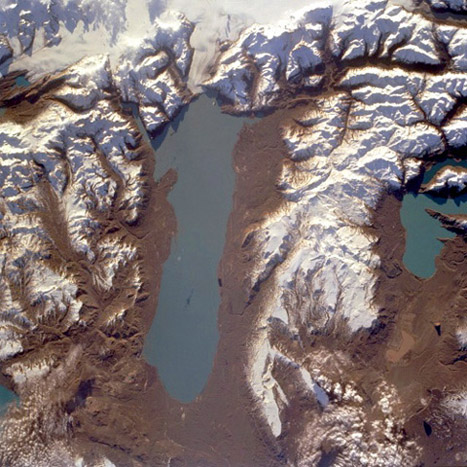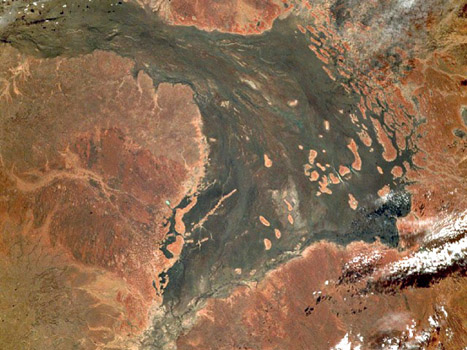| Lakes |
| Lakes form in local topographic lows, perhaps formed by glacial scouring, rocky debris or sedimentation. Circular crater lakes occur in the eruption craters or calderas of volcanoes (usually extinct), or in meteorite impact craters.
A lake in the Andes Mountains, coloured by eroded rock in the meltwater of the glaciers that feed it. Most lakes have an outflow river which continues to flow down to sea level. In arid areas, a large portion of a lake's water may be lost by evaporation and there may be no outflow. Such lakes may be seasonal, filling up during rainy times and leaving a salt residue behind after the water has evaporated. A lake in the Andes Mountains, coloured by eroded rock in the meltwater of the glaciers that feed it.
A chaotic drainage system of rivers and lakes in Asia's Chang Jiang River Basin.
Cooper Creek, Australia : A large outwash plain subject to flash floods in an arid area. |
| Links | ||||||
|


